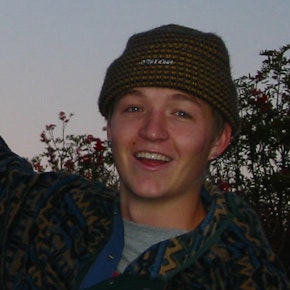
Being a director of a summer camp means managing a diverse range of activities and participants. We take young people into situations of adventure, fun, and, yes, risk. Risk may sound worrisome to parents, but a fundamental life skill is to recognize it and adjust behaviors for it. The safety and growth of our campers and staff is of the utmost importance to us, and training our campers and counselors to recognize and manage risk is central to our camp.
Taking risks does not mean being reckless. Often the difference between doing something reckless and doing something that involves risk is simply a matter of taking the time to do something the right way, which is a practice we try to instill in our campers and staff. Risk is an integral aspect of every facet of life, influencing choices, strategies, and the pursuit of goals and objectives.
One of my favorite activities at camp is rock climbing. Although rock climbing is one of the safest activities we do at camp, it looks risky: ascending rock faces that can be hundreds of feet high on sheer granite cliffs. But on closer inspection, there are redundancies built in to lessen the risk to no more than a scraped knee.
Rock climbing safety is all about systems and communication. Every system, command, and skill has been practiced and established beforehand, first on flat ground, then the climbing tower, and then longer routes. Throughout this process, campers are always taught to review their own and others’ systems before committing to the climb. This establishes a safety first mindset. All the while, we see fears being conquered, growth of self-esteem, confidence, patience, and grit, as well as some really spectacular views! Some of our counselors have been doing this all their adult lives with no major accidents, because they were taught properly as campers.
Organizations that deal with risk must be ceaselessly reflective about it, and never overconfident that simply because they’ve been doing this longer than most, they don’t have to think about it as much. We think about it constantly. Counselors are trained as the campers are, to check systems and ask for extra eyes on a situation before committing camper safety to it. Furthermore, many of our younger counselors come to us with new training, knowledge, and standards of care from courses led by organizations like the American Mountain Guide Association (AMGA). It is not simply older generations lecturing younger; it’s a reciprocal relationship.
Our new leadership team is in constant pursuit of risk assessment maturity. We are striving for an ingrained culture of risk awareness at Camp Mondamin. We are doing our utmost to help our counselors intuitively adapt to changing circumstances where their intuition is supported by structure and training. During orientation, all our counselors are trained in CPR and general first aid. Every waterfront staff member is a certified Red Cross lifeguard. Designated Trip Leaders (DTL’s) have all completed a 70-hour Wilderness First Responder course before camp, and we take each one through an extensive apprentice program of our own during the summer. We do accident/incident debriefing, practice lightning and fire procedures in and out of camp, and have a multitude of other safety standards. All of this is done to ensure the safety of our campers and staff.
During our sessions we ensure that our counselors are not the only ones who think about risk. Campers are more than just told about risks, they are actively involved in all of our safety practices and it is part of our teaching in every activity we do at camp. In fact, as campers increase in skill and age, we put them in positions of increasing responsibility on trips, with the counselor always in place to support or step in if a situation requires more structure or skill. This is the core of our Aide and Counselor Training (CT) program for 16- and 17-year olds, where they are taught how to prepare for the unexpected whether they are riding a horse in camp, planning for a multi-day hiking adventure, or exploring a wilderness river.
Our training programs are specifically tailored to the unique challenges of the camp environment. Our counselors receive comprehensive training on emergency procedures, risk assessment, and child protection. Moreover, empowering our campers with basic safety knowledge enhances their ability to make informed decisions during activities. Our counselors and campers all carry these skills learned at camp and use them to navigate life outside of camp. Our camp is built on shared experiences as the campers themselves move up from novices in an activity to advanced levels, all the while being supported by their counselors. Camp counselors are frontline leaders, influencing campers’ behaviors and attitudes, especially in regard to risk. Leadership engagement involves modeling safe practices, providing guidance during activities, and cultivating a culture where risk is not feared, but rather respected and managed with responsibility. We find that when campers experience this, they tend to build their skills even higher when away from camp, and then return to lead the next generations as counselors themselves.
At Mondamin, entering our second century of managing adventures that shape young men’s lives, we know that this is a constant pattern of action, reflection, and constantly applying what we learn. That’s what we are teaching the young men; that’s what we are applying to ourselves.

